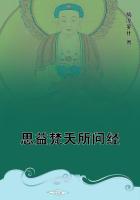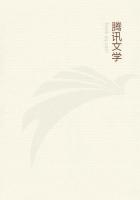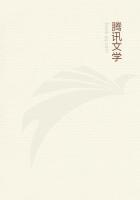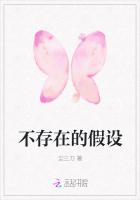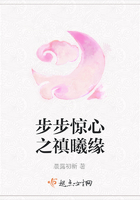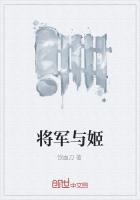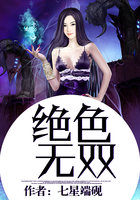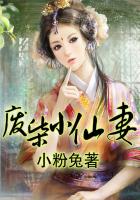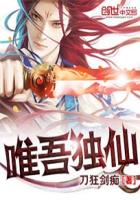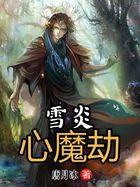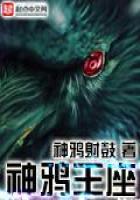Eating-forks they have none, and for an eating-fork they have no word, the term pasengri signifying a straw- or pitch-fork. Spoons are used by them generally of horn, and are called royis. They have but two culinary articles, the kekkauvi and pirry, kettle and boiler, which are generally of copper, to which, however, may perhaps be added the kekkauviskey saster, or kettle-iron, by which the kettle and boiler are hung over the fire. As a fireplace they have a large iron pan on three legs, with holes or eyes in the sides, in order that the heat of the fire may be cast around. Instead of coals they use coke, which emits no flame and little smoke, and casts a considerable heat. Every tent has a pail or two, and perhaps a small cask or barrel, the proper name for which is bedra, though it is generally called pani-mengri, or thing for water. At the farther end of the tent is a mattress, with a green cloth, or perhaps a sheet spread upon it, forming a kind of couch, on which visitors are generally asked to sit down:- Av adrey, Romany Rye, av adrey ta besh aley pawdle odoy! Come in, Gypsy gentleman (said a polite Gypsy one day to the writer); come in and sit down over yonder! They have a box or two in which they stow away their breakable articles and whatever things they set any particular value upon. Some of them have small feather-beds, and they are generally tolerably well provided with blankets.
The caravans are not numerous, and have only been used of late years by any of the English Gypsy race. The caravan called by the Gypsies keir vardo, or waggon-house, is on four wheels, and is drawn by a horse or perhaps a couple of donkeys. It is about twelve feet long by six broad and six high. At the farther end are a couple of transverse berths, one above the other, like those in the cabin of a ship; and a little way from these is a curtain hanging by rings from an iron rod running across, which, when drawn, forms a partition. On either side is a small glazed window. The most remarkable object is a stove just inside the door, on the left hand, with a metal chimney which goes through the roof. This stove, the Gypsy term for which is bo, casts, when lighted, a great heat, and in some cases is made in a very handsome fashion. Some caravans have mirrors against the sides, and exhibit other indications of an aiming at luxury, though in general they are dirty, squalid places, quite as much as or perhaps more than the tents, which seem to be the proper and congenial homes of the Gypsies.
The mode of life of these people may be briefly described. They have two regular meals--breakfast and supper. The breakfast consists of tea, generally of the best quality, bread, butter, and cheese; the supper, of tea and a stew. In spring time they occasionally make a kind of tea or soup of the tender leaves of a certain description of nettle. This preparation, which they call dandrimengreskie zimmen, or the broth of the stinging-thing, is highly relished by them. They get up early, and go to bed betimes. After breakfast the men sit down to chin the cost, to mend chairs or make baskets; the women go forth to hok and dukker, and the children to beg, or to go with the donkeys to lanes and commons to watch them, whilst they try to fill their poor bellies with grass and thistles. These children sometimes bring home hotchiwitches, or hedgehogs, the flesh of which is very sweet and tender, and which their mothers are adepts at cooking.
The Gypsies, as has been already observed, are not the sole occupiers of Wandsworth grounds. Strange, wild guests are to be found there, who, without being Gypsies, have much of Gypsyism in their habits, and who far exceed the Gypsies in number. To pass them by without notice would be unpardonable. They may be divided into three classes: Chorodies, Kora-mengre, and Hindity-mengre. Something about each:-The Chorodies are the legitimate descendants of the rogues and outcasts who roamed about England long before its soil was trodden by a Gypsy foot. They are a truly detestable set of beings; both men and women being ferocious in their appearance, and in their conversation horrible and disgusting. They have coarse, vulgar features, and hair which puts one wonderfully in mind of refuse flax, or the material of which mops are composed. Their complexions, when not obscured with grime, are rather fair than dark, evidencing that their origin is low, swinish Saxon, and not gentle Romany. Their language is the frowsiest English, interlarded with cant expressions and a few words of bastard Romany. They live in the vilest tents, with the exception of two or three families, who have their abode in broken and filthy caravans. They have none of the comforts and elegancies of the Gypsies. They are utterly destitute of civility and good manners, and are generally squalid in their dress, though the women sometimes exhibit not a little dirty tawdriness. The trades of the men are tinkering and basket-making, and some few "peel the stick." The women go about with the articles made by their husbands, or rather partners, and sometimes do a little in the fortune-telling line--pretty prophetesses! The fellows will occasionally knock a man down in the dark, and rob him; the women will steal anything they can conveniently lay their hands on.
Singular as it may seem to those not deeply acquainted with human nature, these wretches are not without a kind of pride. "We are no Gypsies--not we! no, nor Irish either. We are English, and decent folks--none of your rubbish!" The Gypsies hold them, and with reason, in supreme contempt, and it is from them that they got their name of Chorodies, not a little applicable to them. Choredo, in Gypsy, signifies a poor, miserable person, and differs very little in sound from two words, one Sanscrit and the other Hebrew, both signifying, like the Gypsy term, something low, mean, and contemptible.

